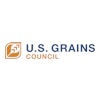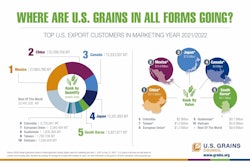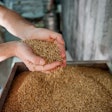
Prices of wheat and corn onglobal commodities marketsrose on Monday after Russiapulled outof adeal that had allowed some grain exportsfrom Ukraine to pass through the Black Sea despite the ongoing conflict.
Wheat futureson the CCBOT jumped 5.5% on Monday to $8.74/bushel. Corn futures were up 2.3% to $6.96/bushel.
Russia claims its ships were hit
According toa report at CNN, the Russian Defense Ministry cited an alleged Ukrainian drone attack Saturday against Russia’s Black Sea Fleet ships moored off the coast of occupied Crimea as the reason for the move.
Ukraine has neither confirmed nor denied it was behind the explosions that hit the Crimea base, but says Russia's navy is a legitimate military target.
U.S.: Russia is using food as a weapon
After Russia suspended its participation, theU.S. accused Russia of using food as a weapon.
U.S. Secretary of State Antony J. Blinken said Russia’s move would take an outsize toll on lower-income countries that depended on Ukrainian products like wheat, corn and sunflower oil.
“In suspending this arrangement, Russia is again weaponizing food in the war it started, directly impacting low- and middle-income countries and global food prices, and exacerbating already dire humanitarian crises and food insecurity,” Blinkensaid in a statement.
Ukrainian President Volodymyr Zelenskyy called the Russian move “predictable" and said Moscow was "blackmailing the world with hunger."
Grain ships sail despite Moscow's pullout
According to a report atReuters, ships brought grain from Ukrainian ports on Monday, suggesting Moscow had stopped short of reimposing a blockade that might have caused world hunger.
International officials had feared that Moscow would reimpose a blockade on Ukrainian grain after its announcement Saturday.
Ukraine confirmed that 12 ships had set sail. The 354,500 tonnes of grain they carried was the most in a daysince the program began, suggesting a backlog was being cleared after exports were interrupted on Sunday.
Next steps
Russia has requested a meeting Monday of the U.N. Security Council to discuss the issue, while offering to supply up to 500,000 tons of grain “to the poorest countries free of charge in the next four months," reportedU.S. News & World Report.
Peter Meyer, head of grain and oilseed analytics atS&P Global Platts, told U.S. News he doubts that Russia suspending its part of the agreement will have a lasting impact on the price and supply of corn and grain.
Commodity traders were skeptical all along that the deal would last, he said, one reason that corn prices have gone up, not down, since the arrangement was reached in July.





















